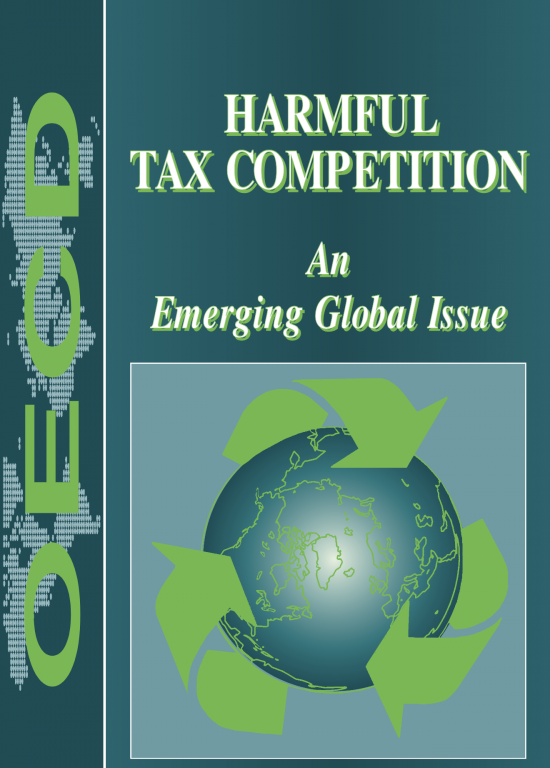Back in 1998 the OECD, the Paris based organisation that seeks to set the rules for cooperation on world tax, issued a document with this cover:

Ever since John Christensen and I have known each other, which we can easily date to our being co-founders of the Tax Justice Network in 2002, we have asked a very simple question. It is this.
If it is accepted that there is harmful tax competition might you please define what benign tax competition looks like?
The reason for asking should be obvious, I hope. It is that all competition is necessarily premised on the idea of there being winners and losers. That means even benign tax competition must create those who gain and suffer loss from it.
And why should that be, is our question? What is the reason why some, who are most likely to be the owners of internationally mobile capital, should gain from arbitraging the democratically chosen tax systems of countries and so by implication undermine democracy and the rule of law in the places where they decide to avoid (at best) their obligations? What is ever benign about this process of undermining the public goods that democracy and the rule of law represent?
We could never find any satisfactory answer to that question. We do not think that there is one. As a result we do not think benign tax competition exists. There is, in fact, only the harmful variety. All tax competition is, then, to the detriment of society. That is why we still oppose it.
Thanks for reading this post.
You can share this post on social media of your choice by clicking these icons:
You can subscribe to this blog's daily email here.
And if you would like to support this blog you can, here:



There’s an example of what you mean from Indonesia in 2018 about the process undermining the rule of law:
Indonesian presidential candidate Prabowo Subianto will slash corporate and personal income taxes if he comes to power, part of a plan to compete with low-tax neighbors like Singapore in luring more investment to Southeast Asia’s biggest economy. …While he didn’t disclose possible tax rates, he said the aim is to lower them “on par with Singapore.” Indonesia currently has a top personal income tax rate of 30 percent and a corporate tax rate of 25 percent. Singapore has a corporate tax rate of 17 percent and a top individual rate of 22 percent for residents. “Our nominal tax rate is too high,” Wibowo said in an interview in Jakarta on Wednesday. Tax reform is needed to attract more foreign business as well as to encourage compliance, he said.
There’s a lot of ruin in a nation, as the great man said.
” …. all competition is necessarily premised on the idea of there being winners and losers”.
May I suggest that the core belief of neoliberalism is dressed in the language of ‘freedom’; but this is principally a rhetorical device. Underneath the surface, neoliberalism’s core faith is that life is a competition, and life requires to be a competition. Society is merely the cultural carapace through which neoliberalism serves the sole purpose of protecting this core belief – and that belief must the prime object of government.